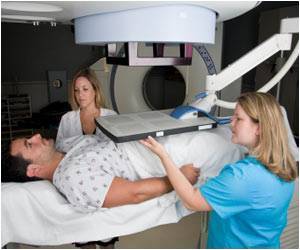Highlights:
- People with obsessive-compulsive disorder (OCD) have the potential to receive personalized treatment
- Cognitive behavioral therapy (CBT) is more effective and reduces symptoms when compared to stress-management therapy (SMT)
- People with stronger activation of brain networks during brain scans with cognitive controlling activity may respond well to CBT treatment
Read More..
The research suggests the possibility of predicting which of the two types of OCD therapy would help teens and adults with OCD.
Comparing OCD Therapies
The research study examined advanced brain scans of 87 teens and adults who had moderate to severe OCD.
The group was randomly assigned 12 weeks of either one of the two types of therapy.
One type of therapy was known as ‘exposure therapy' . It is a form of cognitive behavioral therapy (CBT).
The researchers further observed the brain scans, which was taken before the patients began therapy. The linked the brain scans to individual treatment response.
The brain scans were taken when the patients performed a simple cognitive test. They had to pick the correct letter out of a display.
They also responded to a small monetary reward if the task was completed correctly.
This test measured both the ability of the patients to control their cognitive process in picking the right letter as well as the extent to which the monetary reward motivated them.
Patients with more activation in brain circuits for processing cognitive demands and reward during the test were found to more likely to respond to CBT.
Patients with less activation in the same areas were more likely to respond well to SMT.
"We found that the more OCD-specific form of therapy, the one based on exposure to the focus of obsession and compulsion, was better for relieving symptoms, which in itself is a valuable finding from this head-to-head randomized comparison of two treatment options," says Stephan Taylor, the senior author.
"But when we looked at the brain to see what was behind that response, we found that the more strength patients had in certain brain areas were linked to a greater chance of responding to exposure-based CBT."
Brain Regions Involved in OCD
Key brain regions involved in OCD have been linked to treatment with emerging therapies called transcranial magnetic stimulation.
Stronger activity in a network called cinguloopercular network during the cognitive task, and stronger activity in the orbitostriato-thalamic network during the reward was associated with better response to CBT
Lower activity in both the networks was associated with SMT.
The researchers also found that the effects didn't vary across different age groups.
CBT response was most linked to the rostral anterior cingulate cortex (rACC).
Previous research has already linked rACC to OCD and its treatment in general. It is also thought to play an important role in the self-regulation of response to OCD triggers.
The U-M team have also previously shown that there is reduced activation of rACC in people with OCD when they are asked to perform cognitive control tasks.
Researchers observed that people who responded best to CBT had a stronger pre-treatment activation in brain areas associated with learning how to extinguish fear-based responses to something that caused pain in the past.
Exposure therapy involves facing the situation or thing that provokes fearful and obsessive responses. Having a stronger motivation to rewards may help a person stick with exposure therapy despite the fears.
Personalized OCD Treatment
The researchers suggest an everyday test that can measure characteristics to predict the success of one therapy or the other to personalize OCD treatment.
Behavioral tests could be administered to OCD patients, and the results could help therapists to recommend either CBT or SMT based on the patient's cognitive control and reward responsiveness.
Kate Fitzgerald, the co-senior author of the paper, suggests computer-based training exercises that can strengthen tendencies and rewards for exposing oneself to the action that triggers OCD symptoms. She says that they may potentially improve therapy response.
There is a good chance of helping children and teens as their brains are still maturing.
New Research to Understand OCD
The research team are currently recruiting OCD diagnosed young people for a clinical trial with CBT and includes brain scanning before and after therapy.
The study will also include young people with OCD-like tendencies. OCD symptoms start in tween years, and diagnosis may not occur until the teen or young adult years. Hence, it is important to study children with sub-clinical symptoms of OCD.
CBT therapy is done through video chat, and the brain scans involve in-person interactions.
"We need families and patients to engage with researchers in studies like these," says Fitzgerald.
"Only through research can we understand what works best for different groups of patients. And perhaps by doing so, we can expand the availability of the most evidence-based OCD therapies - including by engaging psychologists and clinical social workers in leading treatment programs, in addition to psychiatrists at specialized centers."
Source-Medindia
















